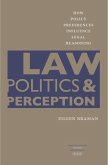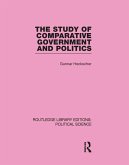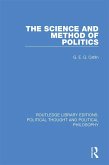The U.S. Supreme Court is the quintessential example of a court that expanded its agenda into policy areas that were once reserved for legislatures. Yet scholars know very little about what causes attention to various policy areas to ebb and flow on the Supreme Court's agenda. Vanessa A. Baird's Answering the Call of the Court: How Justices and Litigants Set the Supreme Court Agenda represents the first scholarly attempt to connect justices' priorities, litigants' strategies, and aggregate policy outputs of the U.S. Supreme Court.
Most previous studies on the Supreme Court's agenda examine case selection, but Baird demonstrates that the agenda-setting process begins long before justices choose which cases they will hear. When justices signal their interest in a particular policy area, litigants respond by sponsoring well-crafted cases in those policy areas. Approximately four to five years later, the Supreme Court's agenda in those areas expands, with cases that are comparatively more politically important and divisive than other cases the Court hears. From issues of discrimination and free expression to welfare policy, from immigration to economic regulation, strategic supporters of litigation pay attention to the goals of Supreme Court justices and bring cases they can use to achieve those goals.
Since policy making in courts is iterative, multiple well-crafted cases are needed for courts to make comprehensive policy. Baird argues that judicial policy-making power depends on the actions of policy entrepreneurs or other litigants who systematically respond to the priorities and preferences of Supreme Court justices.
Dieser Download kann aus rechtlichen Gründen nur mit Rechnungsadresse in A, D ausgeliefert werden.









